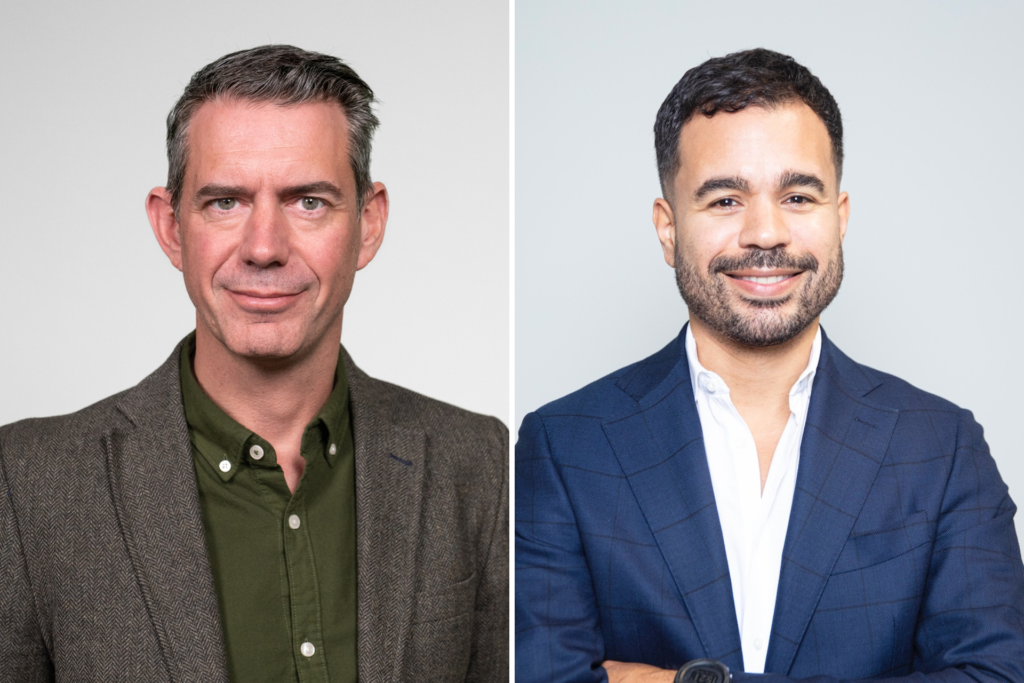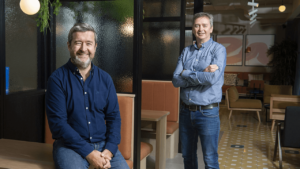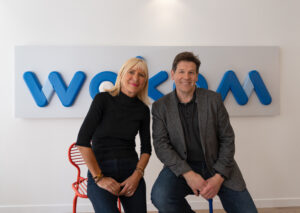Joel Agard, Zurich Insurance Group’s (Zurich) Group Head of Innovation (pictured right), and Antony Elliott, Zurich’s Group Head of Digital R&D (left), are responsible for coordinating and managing one of the most respected accelerator programmes in the insurance industry globally – the Zurich Innovation Championships. Joanna England finds out more.
Seeking the next stratospheric startup is becoming a race to the top for the world’s leading insurance incumbents. Collaborating with an innovative startup that has discovered a gap in the marketplace, and also offers the perfect solution to fill it, solves a number of challenges for established companies and small but forward-thinking enterprises.
For the past six years, Zurich has been running the Zurich Innovation Championships – an accelerator/innovation lab-style programme that sees a wide range of technology startups try out their brilliant ideas on the insurance industry, to see if they can find their niche.

The annual programme invites startups and entrepreneurs with innovative solutions to collaborate on delivering compelling products or services to customers and employees. The competition welcomes participation from startups and scale-ups at various maturity stages, encouraging the submission of products and solutions addressing specific challenges.
The programme comprises two selection rounds and an accelerator phase. In the local round, conducted at a business unit level, each business unit selects up to three local winners. The Central team screens startups, and shortlisting is done at the business unit level based on feedback from subject matter experts and the business unit’s needs. In the global round, the local winners compete against each other, with a jury composed of global Zurich executives evaluating and selecting startups to enter the accelerator phase.
During the accelerator phase, the global winners collaborate with the Zurich business units that initially selected them to validate the initiative.
Furthermore, the Zurich Innovation Championships seeks out ‘Zebras’ – namely, companies that embody a twofold mission, seeking both profitability and societal improvement. According to Zurich’s definition, Zebras flourish through co-existence and collaboration. They also navigate the dual realms of incumbency and startup culture. While their distinctive stripes may symbolise these two contrasting worlds, the collaborative synergy they create transcends the individual contributions, resulting in an outcome greater than the sum of their parts.
Insurtech Insights caught up with Joel Agard, Zurich’s Group Head of Innovation, and Antony Elliott, Zurich’s Group Head of Digital R&D, who are responsible for sourcing and managing the startups selected for the event, to find out more.
Tell us about your roles and what responsibilities you have in terms of seeking out new and innovative startups.
Antony: My primary goal is to seek out innovative technologies and solutions, whether within Zurich itself group-wide or through collaborations with startups, which we’ll discuss today. In my role, I also work with various business units across the group to explore the potential of these innovations and determine if we can effectively scale them to generate business value.
Joel: As the Head of Group Innovation at Zurich, my job involves spearheading innovation initiatives from the corporate centre and coordinating an innovation community that spans the globe, comprising over 100 innovation managers.
How did you both enter the innovation lab space? What previous experience led you to this point and why this particular area of expertise?
Antony: I stumbled into the insurance industry quite a while back, around 1999. It’s safe to say that not many people grow up aspiring to work in insurance, but after graduating from university, I found myself in the insurance sector. What drew me in was the constant drive for improvement. Throughout my career, I’ve been involved in various facets of the industry, spending approximately 13 to 14 years in operations. This journey led me through roles such as project management, change management, business architecture, enterprise architecture, and business transformation.
I’ve also had the privilege of diving into the innovation space, and what I truly appreciate about the insurance industry is its vital role in society. However, there’s always room for improvement, and we recognize that, in the past, customer experience in insurance has often fallen short of what people expect from other industries. The opportunity to innovate and propel the industry forward is what excites me the most. That’s why I’m thrilled to be part of this space, where each day brings new challenges and no two days are alike. It’s the dynamic nature of the job that keeps me passionate about what I do.
Joel: I found myself working for Zurich just five years ago. Prior to that, I had experience with both large technology companies and small startups in various industries, including healthcare, IP streaming, and media consulting. I’ve always been someone who enjoys testing new waters, so when I considered my next move, I deliberately chose the insurance industry. I saw tremendous potential for innovation and believed the market was ripe for change. Zurich, as a company, was also poised to accelerate its digital transformation.
When I initially joined Zurich, I worked in the commercial insurance sector and was immediately involved in developing exciting digital products. This experience eventually led me to the group strategy team, where I took on the role of driving innovation.
I’m genuinely enthusiastic about working in the insurance industry because it offers a diverse range of opportunities. Customers consistently demand an improved experience, and our colleagues worldwide are always searching for ways to simplify how we serve our customers. There’s a wealth of opportunities, and I find it incredibly fulfilling to tackle these challenges every day. This is how I ended up in my current role, and I wake up each morning as a contented individual, even if sometimes it’s a bit tiring, like this week. But it’s truly enjoyable because I believe we can make a significant impact on customers and our company by implementing even small changes that can grow and create value.
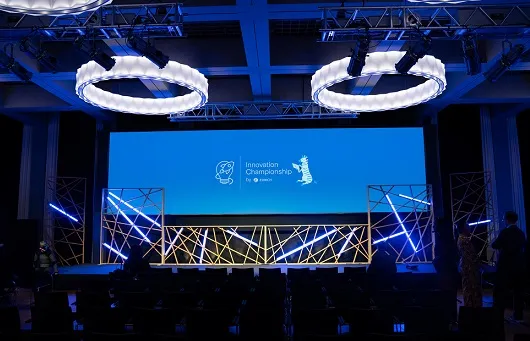
What does the term ‘innovation’ mean to you both? How would you define it?
Joel: I believe that innovation fundamentally revolves around solving either an existing problem or addressing an emerging one with a fresh perspective. It’s this fusion of problem-solving and novel approaches that defines innovation for me. Technology often plays a pivotal role, but it’s equally crucial to identify and deeply understand the problems we’re tackling and then craft solutions, which, more often than not, involve leveraging technology. That’s my take on it. Antony, any differing thoughts?
Antony: Well, I see it quite similarly, but I’d emphasise that innovation is about making things better. It can range from incremental improvements to revolutionary leaps, like going from canal boats to railway trains. Another critical aspect is our approach to work – the innovative mindset. In the insurance industry, we sometimes move slowly, but I believe we should be more willing to take calculated risks. We should be unafraid to present initial drafts, even if they’re not perfect, to our customers and ask, “Does this bring value? Will customers embrace it? Can it be profitable?” If not, we should be agile enough to pivot or explore alternative and superior avenues.
What changes have you seen within the innovation lab space and within Zurich’s own Innovation Championships programme since 2018?
Joel: With our programme, we intentionally avoid the traditional “lab” label.While initially we ventured into experimenting with various labs worldwide, we quickly recognised that, at least in our case, many initiatives initiated within a lab setting tend to remain confined to that space. So in 2018, we instead decided on an approach that embraces open innovation, a concept we term our “open innovation programme.” We launched this program with the aim of showcasing the effectiveness of collaborating with startups in problem-solving.
Our journey has involved establishing connections and fostering collaborations between our business units and startups, creating a competitive environment. When COVID-19 came, we remained steadfast in nurturing these collaborations and progressing the program even during lockdowns. It’s a perpetual learning process and in the third and fourth editions, we put even more focus on delivering tangible outcomes.
We began by selecting more initiatives and investing more time in aligning the right startup with the appropriate business unit. We also introduced an accelerator component, featuring a validation sprint lasting three months. During this sprint, our emphasis is on validating several critical aspects, including customer demand, technical feasibility, and legal compliance, especially in complex use cases.
Our goal is to accumulate enough evidence to make an informed decision about whether to continue the collaboration. This approach stands as a pivotal success factor for our initiative. It sets us apart from traditional labs because we initiate the process by focusing on the needs of our business units and customers. We first identify the problems and then seek solutions, which is distinct from my previous experience leading labs. Our approach is notably different.
What differentiates Zurich’s programme from other innovation drives in the industry?
Joel: What sets us apart from many typical insurance or insurtech Labs is our broad scope. While we do work with insurtechs, the majority of our collaborations involve startups from diverse domains. These can range from proptechs to pure technology companies, climatetechs, healthtechs, and mobilitytechs. The unique aspect here is how these startups complement our existing business model seamlessly.
Our strategy is about creating synergies by teaming up with startups that originate from outside the conventional insurance realm. It’s when these external perspectives merge with our own expertise that something truly magical unfolds. This collaboration can result in the development of digital solutions in areas such as health and mobility, offering our customers access to new use cases and services that enhance their well-being and safety.
For example, we’ve collaborated with startups specialising in preventive solutions, even though they may not identify as insurtechs initially or have a history in insurance. This approach is about experimentation. We start from the customer’s perspective and guide these startups through the validation sprint I mentioned earlier. The sprint allows us to gather proof-points that validate the viability of the collaboration. In many cases, this leads to successful outcomes, but we’re also open to the possibility that it might not work. And that’s perfectly fine. The key difference is that we invest only a few weeks in this process, rather than committing years to it.
Antony: In our journey, the concept of pivoting plays a significant role. We’ve encountered situations where we initially begin with one direction, only to realise that it’s not the right fit for our chosen customer segment. In such cases, we’re open to making a pivot – a shift in strategy. We’ve experienced scenarios where we’ve reevaluated our approach and identified a completely different customer segment that aligns better with our offerings. It’s a dynamic process, and pivoting is a natural and integral part of what we do. We’re constantly adapting and evolving to ensure we’re on the right path.
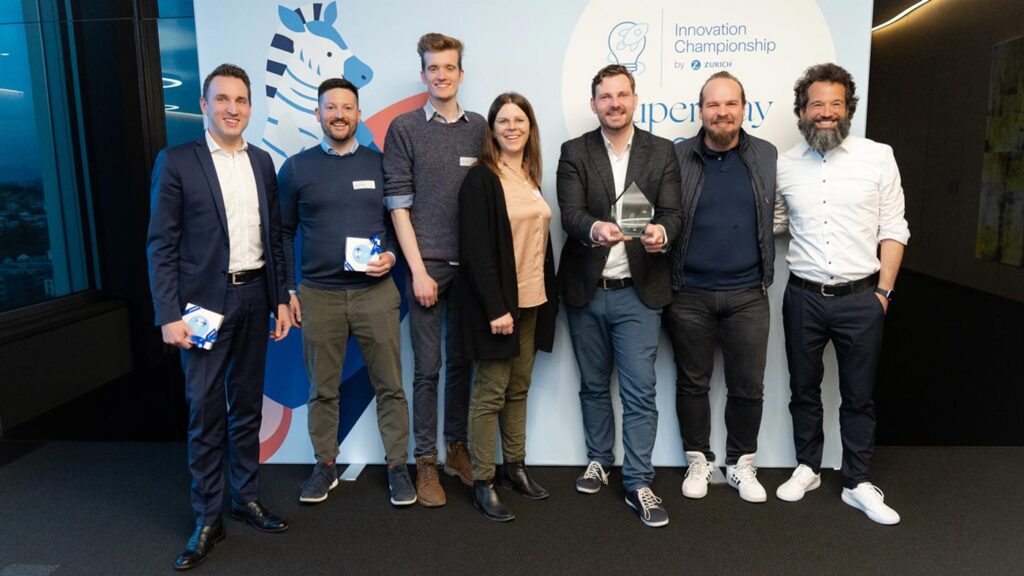
What elements make it such a successful endeavour in terms of launching new startups and giving them a global platform?
Joel: One of the key distinctions in our approach is the active involvement of our business units from around the world right from the outset. They are intimately connected to our business operations, engaging with our customers daily, which gives them a deep understanding of the pressing issues and emerging challenges. They have a keen eye for identifying these challenges.
This involvement empowers our business units to handpick startups that align with their specific needs and interests. This is where Antony’s and my team – he’s from the tech side, I’m from the strategy side – come into play. We collaborate to identify commonalities and patterns across the organisation. We aim to connect initiatives that resonate across different parts of our global footprint, those facing similar challenges or operating in regions with shared concerns.
Additionally, we do our best to ensure that promising initiatives are scaled up early in the process. Leveraging our extensive global reach can be challenging at times, but in this context, it serves as a catalyst. It allows us to bring together diverse geographies, countries, and territories, fostering an environment where knowledge sharing thrives. This collaborative exchange of insights is a factor that should not be underestimated in our pursuit of innovation and problem-solving.
What criterias do you follow for each annual event?
Antony: Each year, we kickstart our programme by collaborating with our Group Executive Committee to identify the main categories for our startup initiatives. This process involves conducting interviews with every member of our executive committee, who play a pivotal role throughout the program. In fact, just today, we’ve had several meetings with our ExCo members, where they engage directly with startups and our business units. Together, we define the strategic categories that will guide our efforts for the year. For this year, these categories include commercial insurance, customer experience, distribution partnerships, digital enablement, and sustainability. These categories represent the strategic priorities for this year’s Innovation Championship.
Following this, we empower our business units to identify specific pain points or opportunities within these categories. They then choose the most suitable startups to address these challenges. Importantly, our executives remain actively involved in the programme, participating in the shortlisting, selection, mentoring, coaching, and even the execution and adoption phases throughout the entire process.
What sets our programme apart is the level of senior leadership involvement and the scale at which it operates. Not all startup incubation labs offer such direct engagement with senior leadership, making our approach unique and impactful.
Demand for places is incredibly high. So far, in the four editions, you’ve had over 8,000 applicants in total. How do you select the successful participants?
Antony: Let me walk you through our process this year. We began by identifying five overarching meta-challenges, which in turn led to underlying use cases. These meta-challenges serve as a guiding framework, allowing us to specify the kinds of startups we’re interested in collaborating with. For instance, when Korr.ai, a company specialising in micro-movements in land using radar satellites, approached us, even though they hadn’t previously worked with an insurer, it became apparent that their expertise aligned with our focus areas. This specificity helps us pinpoint opportunities effectively.
We invited startups to apply, and we received a substantial 3,500 submissions this year, a testament to the vibrant innovation landscape. Our next step involved a thorough evaluation process. We meticulously reviewed each submission to identify those with the most promise and alignment with our goals.
A pivotal phase was when our business units across the organisation stepped in. They selected a total of 400 startups from the pool, taking into consideration their unique local needs. Subsequently, these selected startups participated in “super days” where our teams conducted deep dives to assess their potential in addressing specific local challenges. From this pool, 50 local winners emerged, representing various countries and regions. These local winners then became our global finalists.
The final selection process involves our global experts and executives. We assess which startups possess innovative technology, have the right founders with whom we want to collaborate, and are best positioned to solve the most critical problems we face as a business. This encompasses both business challenges and opportunities for our customers.
It’s worth noting that not all solutions require co-development. Some can be procured through standard processes. Our focus is on identifying those areas where collaborative development adds significant value.
Additionally, we’ve communicated our intent to work with “zebra startups,” which are distinct from the renowned unicorns. Zebras are characterised by their dual nature—black representing for-profit endeavours and white signifying a commitment to societal and environmental responsibility. This aligns with our company’s values and reflects how we aspire to work in a sustainable and responsible manner.
What are some of the most successful, surprising innovations that you have come across as a result of the programme?
Joel: We’ve encountered numerous remarkable startups, but one that stands out this year is particularly fascinating. Called Agave Biosensors, it involves a biodegradable sensor, a wearable device designed to provide insights into your vital health statistics. While the wearable technology itself might not seem ground-breaking, what truly sets this company apart is its unwavering commitment to a larger purpose. They are not only concerned with enhancing physical and mental well-being but also prioritise the health of our planet. They effectively address both the “E” and “S” in ESG (Environmental, Social, and Governance) simultaneously, which, in my opinion, is a remarkable achievement. It’s a testament to their innovative approach to sustainable technology. Antony, any startups that have caught your attention recently?
Antony: Absolutely, I must say one of the notable surprises for us this year has been the substantial interest in the sustainability category. It’s emerged as a significant trend, and when we reflect on the past four or five years, it’s remarkable how it’s grown from a minor consideration to becoming the single largest category of submissions. What’s particularly heartening is that within this sustainability category, As Joel said we’ve observed a strong presence of social innovation as well. The other sustainability challenge winner this year is a mental health startup called Wysa which offer an AI chatbot for mental health support.
While not every promising startup ultimately makes it into the accelerator program, we continue to explore collaborations with other participants beyond the global winners. For instance, we’re actively engaged with a company focused on carbon capture, coordinating with our facility management team to explore potential collaborations.
On a broader note, it’s the everyday surprises that keep things interesting. Witnessing those moments of profound learning, those “aha” moments when a startup team grasps the potential of technologies like computer vision and AI within the insurance context, is truly remarkable. These realisations lead to innovative breakthroughs, and that’s what makes our work so enjoyable and filled with surprises.
One of the purposes of the Zurich Innovation Championships, is to find cutting-edge startups that would make good partners for Zurich. What are the key factors that help to build a successful relationship between a big corporation like Zurich and a small startup?
Antony: I can elaborate on that point. It’s not just about our accelerator programme in isolation; what’s crucial is creating the right environment and timing for these initiatives. As I mentioned earlier, when you bring together individuals from underwriting, data, and data science backgrounds, you need to ensure there’s space for meaningful conversations and mutual learning. This environment is pivotal to our success.
Once we’ve proven the effectiveness of a solution and seen that our customers embrace it, we assess it as a valid business case. It’s essential to recognise that we are here to achieve profitability while making a positive impact. At this stage, our focus shifts towards adoption in various countries.
We are a global company, as Joel mentioned earlier, and we aim to leverage our global scale. This global reach is something startups find particularly appealing, as it enables them to access a broader market. Simultaneously, it provides us with the opportunity to scale these solutions across our entire organisation.
For instance, if we develop a solution that significantly benefits mental health for our customers in North America, we recognise that mental health is a relevant issue or opportunity worldwide. So, our goal is to take that solution and adapt it to various markets, different lines of business, and diverse customer segments. This is precisely the direction we’re heading in now, focusing on how we can bring these solutions to a global scale and make a broader positive impact.
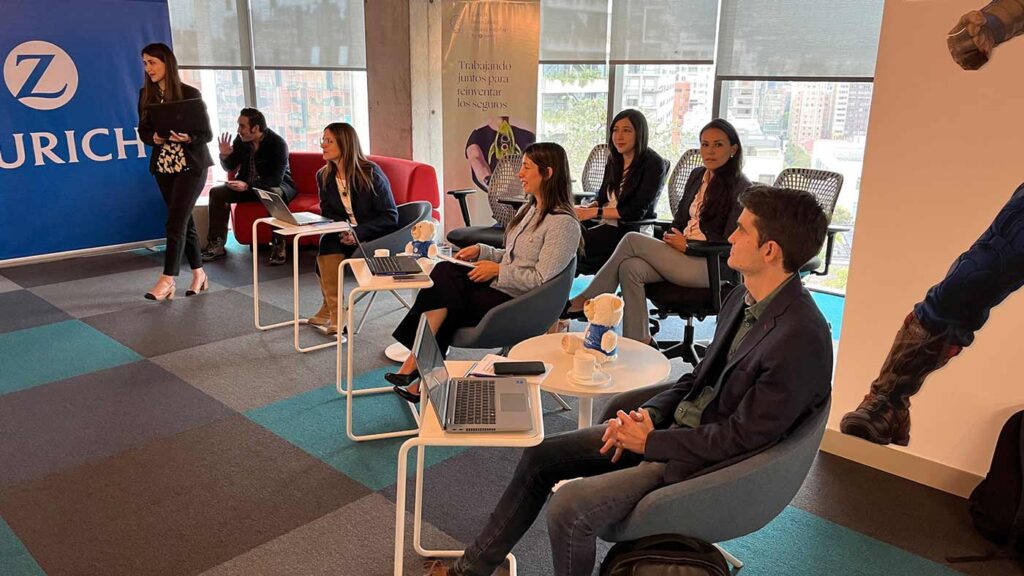
Can you highlight a couple of the exciting collaborations that are currently underway?
Antony: We have numerous exciting collaborations ongoing, but let me mention a couple of them. First, there’s our collaboration with a Chilean insurtech called LISA Insurtech. Together, we’ve made significant strides in automating health claims. This not only speeds up the claims process for our customers but also reduces the manual workload for processing high-volume claims. It’s a win-win situation for all.
Another noteworthy collaboration is with Binah.AI. They utilise computer vision to measure capillaries under the eyes, enabling them to determine heart rate, heart rate volatility, and blood pressure using just a smartphone. We’ve integrated this technology into our LiveWell wellbeing app. Currently, we’re exploring how this technology can benefit us from a life insurance perspective, whether it’s for generating leads or assisting in medical underwriting. It’s not only fascinating but also aligns perfectly with our business objectives.
Joel: It’s worth noting that these are just a couple of examples. We have a total of more than 50 ongoing collaborations across the globe, and some of them didn’t even go through our accelerator program but still resulted in impactful collaborations. For instance, Riskine, collaborated with our business unit in Austria to help agents enhance their communication with customers, ultimately improving the way insurance products are presented. We’ve also implemented their solutions in other markets, providing customers with personalised advice based on their goals and current situation, which enhances our distribution channels.
As for the speed of these collaborations, it’s quite remarkable. Some of them have gone from initial discussions to product launches in just four months. For instance, a collaboration between our global unit Zurich Resilience Solutions and cybersecurity firm Citalid resulted in the launch of a new global cyber risk quantification service that was announced during the Zurich’s first ever Innovation Demo Day on September 27th. This rapid progress is extraordinarily impressive, especially considering the summer period.
Are there any emerging market contenders you can tell us about?
Antony: Absolutely, I’d love to highlight a fascinating aspect of our collaborations. Two of the companies we’re currently working with have development teams in emerging markets, which is quite unusual in the insurtech space. Firstly, we have Hence Technologies, whose development team is based in Kigali, Rwanda. Then there’s Miss MoneyPenny, with their dev team located in Vietnam. It’s intriguing to see how technology talent isn’t limited to Silicon Valley or other well-known tech hubs like London or Berlin.
Joel: I’ve had the privilege of working closely with both teams, and I must say, the teams in Kigali and Ho Chi Minh have truly impressed me. Their capabilities and innovative solutions have been remarkable. It’s a reminder that the best technology teams can emerge from unexpected places.
Are there any exciting developments regarding the Zurich Innovation Championships programme that will be coming up within the next 12 to 18 months that you can share with us?
Joel: Absolutely, we’re on the verge of wrapping up the current batch. However, it’s essential to understand that this is not the end but rather the beginning of an ongoing journey. In an ideal world, it’s a never-ending love story where we continue to collaborate with startups that have gone through our program. Our focus is on nurturing the relationships with the more than 50 ongoing collaborations, ensuring they gain traction, and continue to bring value to our customers and our business. We’re also gearing up to launch the next edition of the championship in January next year.
Antony: Looking back, there’s been a consistent pattern, with a strong emphasis on putting our customers at the centre of our efforts. So, you can definitely expect a continued focus on enhancing the customer experience, albeit in different forms. Sustainability is another enduring theme that has been integral to our innovation championship from the very beginning. I foresee these areas remaining a top priority. Additionally, we aim to streamline and simplify the way we serve our customers, making their interactions with us even more straightforward and the relationship with our customers more meaningful altogether.
Interview by Joanna England
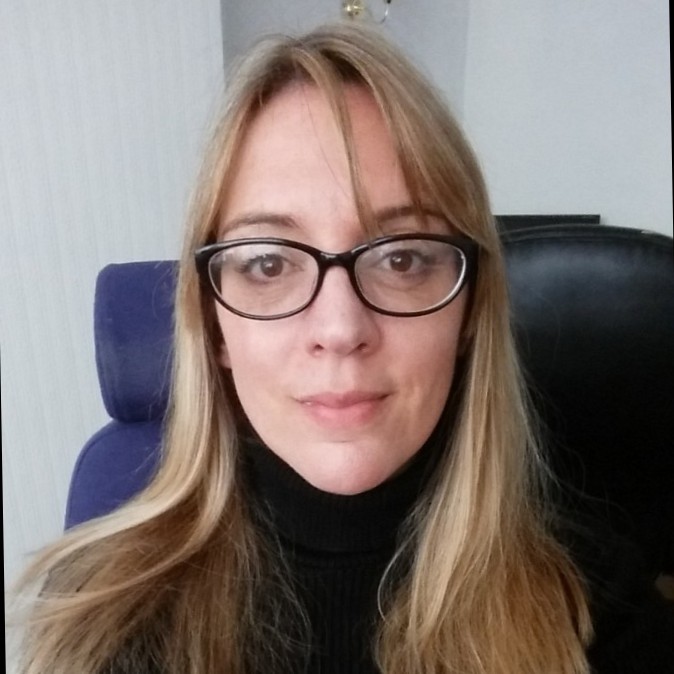
Joanna England is an award-winning journalist and the Editor-in-Chief for Insurtech Insights. She has worked for 25 years in both the consumer and business space, and also spent 15 years in the Middle East, on national newspapers as well as leading events and lifestyle publications. Prior to Insurtech Insights, Joanna was the Editor-in-Chief for Fintech Magazine and Insurtech Digital. She was also listed by MPVR as one of the Top 30 journalist in Fintech and Insurtech in 2023.

